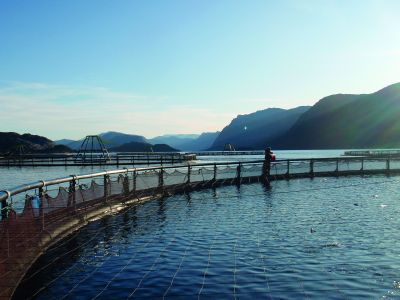Difference between revisions of "Marine Biotechnology securing Food supply"
| Line 8: | Line 8: | ||
|} | |} | ||
| − | Marine Biotechnology has contributed significantly to increasing production efficiency and product quality, to the introduction of new species for intensive cultivation and | + | Marine Biotechnology has contributed significantly to increasing production efficiency and product quality, to the introduction of new species for intensive cultivation and the development of sustainable practices through a better understanding of the molecular and physiological basis for health, reproduction, development and growth, and a better control of these processes. However, commercial aquaculture continues to face challenges in understanding and controlling reproduction, early life-stage development, growth, nutrition, disease and animal health management and environmental interactions and sustainability. |
Revision as of 08:43, 7 November 2012
Marine Biotechnology is essential to satisfy the growing demand for high quality and healthy products from fisheries and aquaculture in a sustainable way. The growing demand for marine food will need to be increasingly delivered through intensive aquaculture. Rapid biological and biotechnological progress in the last decade has resulted in a more efficient and environmentally responsible aquaculture and a greater diversity of marine food products.

|
| Marine Biotechnology applications in aquaculture can enhance the sustainable supply of high quality and healthy food. |
Marine Biotechnology has contributed significantly to increasing production efficiency and product quality, to the introduction of new species for intensive cultivation and the development of sustainable practices through a better understanding of the molecular and physiological basis for health, reproduction, development and growth, and a better control of these processes. However, commercial aquaculture continues to face challenges in understanding and controlling reproduction, early life-stage development, growth, nutrition, disease and animal health management and environmental interactions and sustainability.
Case studies showing examples of progress
- Marine derived food additives
- Marine derived nutraceutics
- Marine derived E-numbers
- Marine biotechnological progresses in aquaculture